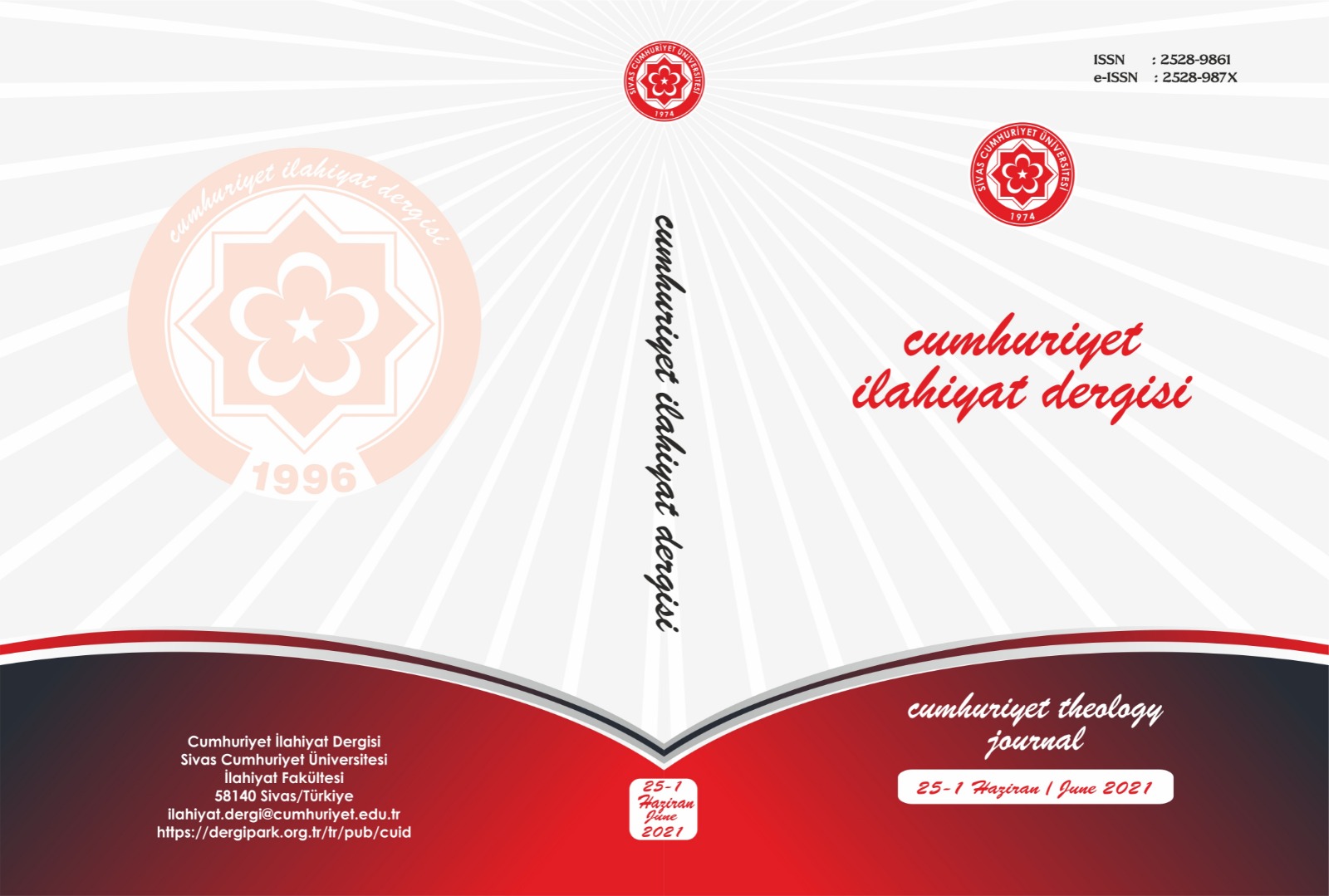Hav’eb Köpeklerinin Havlaması Olayıyla İlgili Rivâyetlerin Sened ve Muhteva Değerlendirmesine Dâir Bazı Tespitler
Some Findings Regarding the Chain of Narrators (Sanad) and Textual Content (Matn) Evaluation of the Reports About the Barking of Hawaab Dogs
Author(s): Mücahit YÜKSELSubject(s): Theology and Religion, History of Islam
Published by: Cumhuriyet Üniversitesi İlahyat Fakültesi
Keywords: Islamic History; The Battle of the Camel; Hawaab Dogs; ʻAlī b. Abī Tālib; ʻĀ’isha bt. Abī Bakr;
Summary/Abstract: ʻAlī b. Abī Tālib (d. 40/661), who took over the caliphate duty in a troubled environment after the murder of ʻUthmān b. ʻAffān (d. 35/656), first faced with the demands that the murderers of his murdered predecessor be punished. Although Hazrat ʻAlī himself was of the same opinion, he wanted to ensure public order in the city first. However, the Companions of the Prophet (aṣ-ṣaḥābah) like Zubayr b. al-ʻAwwām (d. 36/656) and Ṭalḥa b. ʿUbaydallāh (d. 36/656), who were not convinced about this issue, started an opposition movement under the leadership of ʻĀ’isha bt. Abī Bakr (d. 58/678), who went to Mecca. The attempts of this movement, which got out of control with the participation of Umayyads and ʻAbdallāh b. Saba’ supporters of different intentions, ended with The Battle of the Camel. Before the war took place, Hazrat ʻĀ’isha heard the barking of dogs when the army led by ʻĀ’isha came to Hawaab on the road to Basra. For this reason, she asked where they were. When she heard that this region was Hawaab, she wanted to go back. Because the Hazrat Prophet had said the following before: "Which of you the Haw's dogs will bark for." The following statement is used in the ḥadīth sources in several different variants, generally without specifying a name: "Thereupon, the people with her wanted her to continue her journey, hoping that the Muslims would recover.” At this point, there is a difference between ḥadīth sources and Islamic historical sources. Islamic historical sources state that the people who wanted her to continue her journey were Ṭalḥa b. ʿUbaydallāh, Zubayr b. al-ʻAwwām and ʻAbdallāh b. al-Zubayr (d. 73/692). The following statements are included in another narration reported from Ibn ʻAbbās (d. 68/688) regarding the issue: The Prophet said to his wives: “I wish I knew! Which of you owns the beautiful hairy camel!” She will set out and then Hawaab dogs will bark at her, many people will be killed, right and left. Then she will survive when she is almost dead. A fifth piece of news mentioned within this framework was narrated by Abū Rāfiʻ (d. 40/660). According to this rumor, the Prophet of Allah said to Hazrat ʻAlī: "Something will happen between you and ʻĀ’isha." Hazrat ʻAlī said: "O Prophet of God! Me?" Allah's Prophet said: "Yes." Hazrat ʻAlī said: "Is it me among my friends?" Allah's Prophet said: "Yes." Hazrat ʻAlī said: "Well, did I trouble them?" The Prophet of Allah said: "No," and then added: "If such a thing happens, take her to a safe place." The sixth narration on the subject is a statement made by Ḥudhayfa b. al-Yamān (d. 36/656). Accordingly, Ḥudhayfa said: "Would you believe me if I told you that one of your mothers will set out with a group of Muslims and will fight you?" Those who were there said: "Will this really happen?" Ḥudhayfa said: "Yes". The last narration mentioned in this context is the news of Abū Bakra (d. 52/671). According to this narration: "Abū Bakra said: Immediately after joining the people of Camel in order to fight with them in the days of Camel, Allah helped me with a word I heard from the Prophet. When the news that the Persians appointed the daughter of Kisrā as the ruler reached the Prophet, the Prophet said: ‘The people who entrust their works to women will not find peace’. " In such a situation, it becomes important to analyze the narrations. Because analyzing the reliability of the narrators and the contents of the narrations will help to understand the subject in a healthy way. Although ḥadīth scholars make some different statements about the reliability of the people who narrated the narrations, the view that gains weight is that they are reliable. Likewise, no problem was detected in the contents of the narrations. Some problems draw attention when Islamic historical sources are considered. For, these historians were not as sensitive as ḥadīth scholars regarding the evaluation of the narrations. At this point, two problems draw attention: The transponder understanding adopted in the early stages of historiography. The effort to protect some valued people. Early historians generally adopted the transponder understanding while writing their works. For this reason, some misinformation that was not analyzed began to be passed down from generation to generation. At this point, the science of history should benefit from the methods of ḥadīth and its sound narrations. In addition, the effort to protect a valuable person like Hazrat ʻĀ’isha has brought the understanding of holding the Companions like Ṭalḥa b. ʿUbaydallāh and Zubayr b. al-ʻAwwām responsible for a behavior that is thought to be wrong. However, it should not be ignored that people can make mistakes. Loving Hazrat ʻĀ’isha does not require defending her wrong decision. In addition, this has brought the accusation of other Companions of behavior unbecoming to them.
Journal: Cumhuriyet İlahiyat Dergisi
- Issue Year: 25/2021
- Issue No: 1
- Page Range: 5-21
- Page Count: 17
- Language: Turkish

